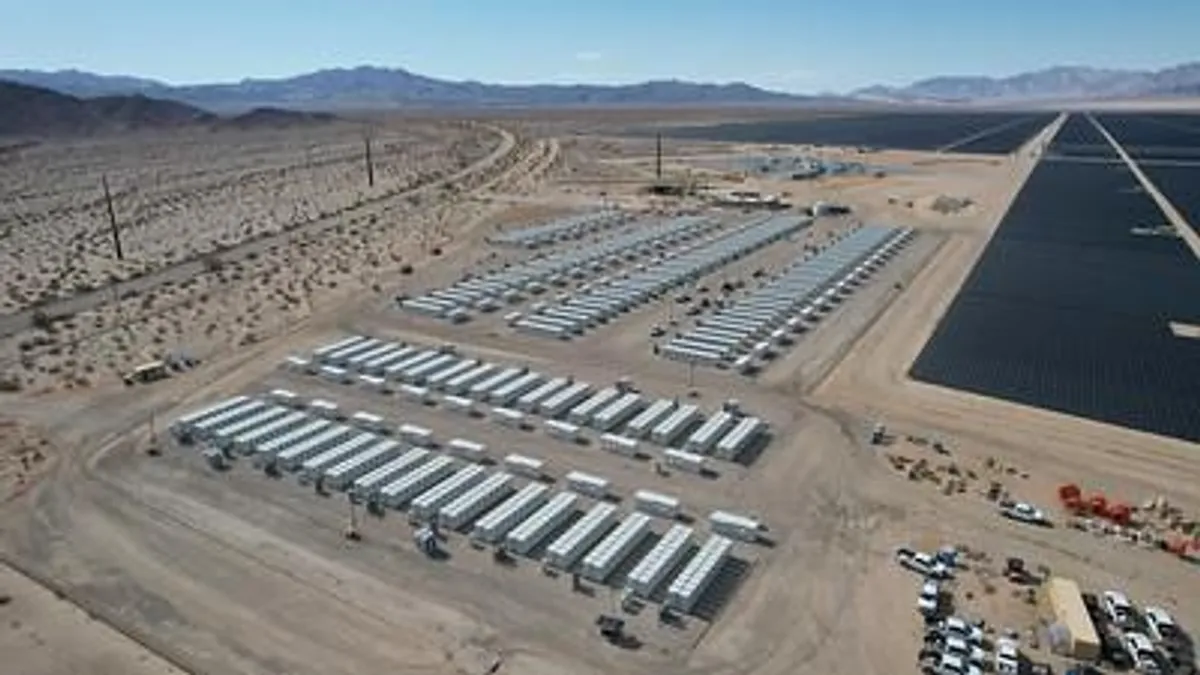Dive Brief:
- Adding battery storage to a power grid can encourage markets to favor coal over natural gas, University of Michigan researchers concluded in a new study. While both of those power sources give off carbon emissions, coal emits more carbon dioxide.
- The analysis looked at the use of energy storage to maintain grid reliability in the PJM Interconnection power grid, which serves 13 Mid-Atlantic and Midwest states and the District of Columbia.
- Energy storage is a necessary piece of the transition to clean energy but it must be paired with efforts to reduce the use of fossil fuels, the researchers said.
Dive Insight:
In “Spillovers from ancillary services to wholesale energy markets,” published in the RAND Journal of Economics on Feb. 12, four researchers at the University of Michigan considered market data from PJM, the nation’s largest regional transmission organization from 2012 to 2014.
"We wanted to better understand how markets handle the introduction of new batteries," said Catherine Hausman, an associate professor of public policy and one of the study’s authors.
The use of batteries for grid reliability has been understudied, she said.
“Because electricity markets are complicated with multiple products being traded and changes in one market affecting the others, adding new technologies to the grid can have unintended consequences,” said Johanna Mathieu, an associate professor of electrical engineering at the University of Michigan and another one of the study’s authors.
As storage batteries reduced the need for grid reliability services, the power generation market shifted from natural gas to coal, the researchers found.
Batteries used to ensure reliability "free up capacity to participate in the generation market and bring down total costs," Hausman said. "In practice, doing that meant freeing up coal-fired capacity and that's what led to the emissions. If you pay batteries to do something that coal-fired power plants used to do, that can mean those power plants are freed up to provide some other service, and you're not guaranteed to get emissions reductions."
Technologies like battery storage are not inherently “green,” Mathieu added. “It depends on how it is used.”
The researchers conceded that their data is limited, but previous research has similar findings. A study conducted by the University of California San Diego in 2012, for example, also found that increased use of energy storage could lead to an increase in carbon emissions in some regions, although the study determined that storage is beneficial in the long run.
“A shift to cause increased emissions is not always the outcome,” the University of Michigan study says, “but it is a possibility to consider when implementing batteries to maintain grid reliability.”
Hausman stressed that energy storage is still a key to the transition to clean energy, but said that utilities adding batteries to the grid must also discourage the use of coal if they want to truly see a reduction in carbon emissions.














